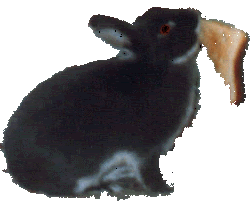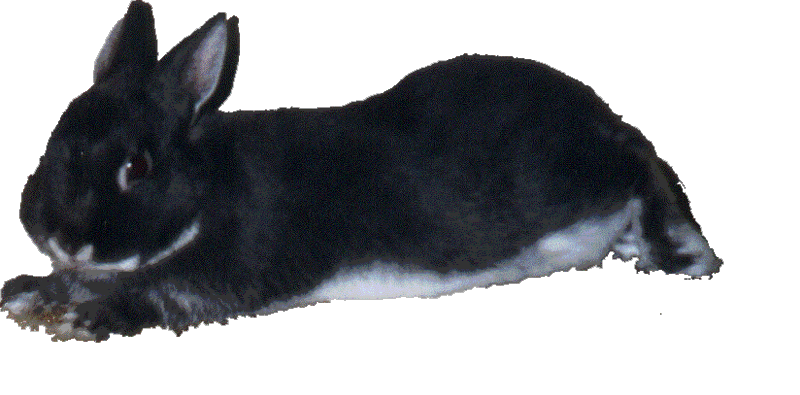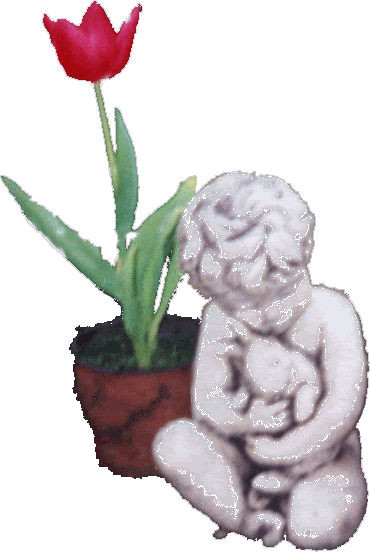

I completed my Bachelor’s Degree
with Honours in 2007, where I earned First Class Honours (H1) results for both
my research thesis and for my entire degree’s overall average. I completed a
double major, to Honours level, in Classical Studies & Archaeology
and History & Philosophy of Science.
During my studies, I won first prize in the Australasian Society for
Classical Studies’ (ASCS) National Essay Competition in 2004, and my
winning essay was published as a journal article in
Iris: the Journal of
the Classical Association of Victoria.
Further to this, I subsequently have had a second and refereed journal article published in the
Archaeological and Anthropological Society of Victoria’s academic journal,
The Artefact.
Further, I earned a Commonwealth Scholarship (CECS) over 2005,
2006 and 2007. I also won a Dean’s Award for my second year studies,
was nominated and earned a place on the
Dean’s Honours List
and was named a Dean’s Scholar, placing me in the top 4% of students for
that year with an average grade of over 80%.
My Honours Research Thesis incorporated and linked my two areas of study -
I explored “the Controversy over Hominid Fossils” - specifically, I investigated
how we classify hominid fossils, and narrowed my focus to a detailed analysis of
Homo habilis. I began by analysing geographical and geological evidence,
and then the archaeological and morphological evidence. I moved on to examine
the history - the discoveries, and the discoverers - and their histories and influences.
I then presented my own analysis from the perspectives of Kuhnian and Popperian
philosophies of science, including analysing our application of systematics
to our classifications of hominid fossils, which included a deeper examination of
taxonomy and systems of biological classifications again with reference to
philosophies of science.
In addition to my university studies, some of my other interests include
reading and writing (as you might perhaps have guessed by my web site’s verbiage),
non-fiction, fiction as well as autobiography; designing and crafting my own
hand-made jewellery; designing and sewing clothing;
photography (check out my folios
at Big Stock Photo
and Fotolia);
gardening with a lifelong interest in horticulture and botany at an amateur level;
amateur astronomy (I’m an administrator and moderator at the
International Astronomy Hub Forum
and also a moderator on the
Garden Express Forum);
natural history and the natural world and bushwalking;
animal and wildlife care; and especially, our very special indoor
Netherland Dwarf bunny rabbits and canaries. I regularly practise both
yoga and tai chi.
I’m also a musician - I wrote my own compositions since earliest childhood,
began training in music theory and keyboard (organ) from the age of 11, and
achieved competency to Yamaha exam Grade 8 level, and am currently learning
rhythm guitar as well as flute; for research purposes, I can read
French, and Ancient Greek to beginner’s level. I am also a movie buff, from
modern films (particularly science fiction) to movie nostalgia, such as
Laurel and Hardy (I was previously a member and a writer for the international
Sons of the Desert Laurel and Hardy Appreciation Society), Thelma Todd, and W. C. Fields.
My university studies began in 1999 when, at the age of 29, I enrolled as a
CAP (Community Access Programme)
student - which I highly recommend to anyone wishing to taste university life -
and, upon earning straight H1s, was accepted into my Degree the following year.
What led me to my chosen areas of study? Well … what is life? What is
consciousness? Also, how does the mind, human will, possibly impact on the
physical world? And if the second law of thermodynamics holds true, how does
complexity develop from chaos? I realise that this law allows for order to
exist in one part of the universe at the expense of, and by causing greater
entropy in, another part of the universe, but it does not allow an
explanation for how organisation begins in the first place.
Another question, what is time and how are we moving through it?
Since there is good evidence that time is not linear after all, but that we
are merely evolved to perceive it in this way, since time is in fact a
geometrical dimension, what then is the true nature of future and past?
Is individuality, also, only an illusion? These are some of the questions
that have led me to contemplate popular science (and science fiction too!)
for years, and culminated in my university studies … I haven’t yet
found definitive answers to “life, the universe and everything”, though I
have discovered a great many more questions! I also find that the most
interesting questions are those to which we do not yet have answers.
History and Philosophy of
Science is unrivalled for one inclined toward philosophical contemplation,
anyone who is questioning the absurdities and random tragedies of this life
and universe, and fundamental existence itself on several different levels.
Encompassing study of philosophy, study of history, and of course of science,
HPS’s span is extensive, fascinating and enlightening. Some of my major essays
in History and Philosophy of Science have focussed on topics as diverse as
the disparities between Newton’s absolute time and Einstein’s relative time,
the philosophical implications of hypothetical time travel on human free will;
the possibility of the existence of block time, distinct from human subjective
perception of a ’flowing’ timeline, perception which is a product of our own
evolution, itself a response to our laws of physics; the possibility that
complexity, of life and of the universe, is a result of underlying simplicity
at a cellular or subatomic level, itself dependent upon processes and thus upon
cellular space rather than upon matter; the immensely long history of belief
in the Earth as a globe, despite our pervasive ’medieval flat earth’ myth;
the idea that electronic media in no way makes text based information
redundant; the development and importance of public health measures prior to,
and independent of, the development of modern medicine; Charles Darwin’s
long process of development of his theory of natural selection, from his
early imaginative insight, through collection of empirical evidence and
progression to scientific theory; the ironic contrast between scientific
hypothesising analogous to Platonic reason, and empirical science and
sensory perception; and the idea that science, far from its exaggerated
caricature, truly promotes philosophical and teleological contemplation,
through the willingness to admit ignorance, thus allowing room for discovery:
to paraphrase Socrates, “wisest is she who knows she does not know”.
History and Philosophy of Science includes historical subjects such as the first-year “History of Astronomy”, which I would highly recommend to anyone who is interested in astronomy, and in the history of knowledge. It begins with the ancient Greeks and their many innovations, and Aristarchus, who hypothesised that the Sun is at the centre of the solar system. This was almost 2,000 years before Copernicus’ theory, and Galileo, revealed this to be so. Contrary to popular opinion, the ancient Greeks knew that the Earth is round … Aristotle wrote that this was gleaned through observing the Earth’s shadow on the Moon during lunar eclipse. Anyway, this is one of the best subjects I’ve come across. Other subject matters include the scientific revolution of seventeenth century Europe, exploring Rene Descartes’ and Isaac Newton’s philosophies amongst others; Darwinism and subsequent controversy from the nineteenth century to the present day, including teleological viewpoints; the history and future of technology, digital media, cybernetics; and the social and ecological implications of the human genome project and genetic engineering. Alongside subjects which focus upon the philosophy and history of scientific knowledge, from views such as Francis Bacon’s: “our only hope lies in a true induction”; to Plato’s: “the true realities … are perceptible to reason and thought but not visible to the eye”. Alternatively, in the words of Immanuel Kant, “concepts without percepts are empty, but percepts without concepts are blind”.

After sampling first year English Literature, Creative Writing, Politics, and Philosophy (where I continued with several second and third year subjects in addition to my two majors), I chose to major in Classical Studies and Archaeology for the interesting historical aspects and the scope of the area. This ranges from “Prehistoric Archaeology”, which focusses on human evolution from its beginnings, our biped ancestors of approximately five million years ago, to the agrarian development of societies; to subjects focussing on the ancient, complex indigenous cultures of Australia, subsequent Aboriginal rock art; the Minoans of ancient Crete, the Mycenaeans; ancient Egypt, Greece, Rome and Byzantium.
In some of my major essays, I have studied the mysterious ancient zoomorphic and anthropomorphic figurines; archaeoastronomy, studying evidence of astronomical observation in the prehistoric Aegean, particularly through Bronze Age Minoan Crete’s archaeological remains and artefacts; Palaeolithic burial evidence and the possible Neanderthal contribution to our evolution; literacy and women in fifth century BC Athens; the powerful naditu women of ancient Babylonia; Constantine’s founding of Constantinople, where the eastern Roman empire continued for 1,000 years after Rome itself fell; the causes of the fall of the Byzantine empire into a dark ages, a direct causal effect of any political authority or society which fails to value humanism, education and academia; the related development of Christian mythology; ancient, profound belief systems which existed long before present day religions were imagined; alternative religions such as Buddhism and Hinduism; indigenous Australian histories, belief systems and cosmologies, and complex, just moral code; phrenology and craniometry, and eugenics, and the misinterpretation of Darwin's theory of natural selection to support these biased social and political policies, despite evidence of Charles Darwin's own opposition to this misappropriation of his theory; the relatively recent development of anthropology and archaeology from antiquarianism; ancient Egypt’s famous Eighteenth Dynasty, including the Pharaoh Akhenaten, and the profundity of his own pantheistic belief system, arguably the very first documented.
In studying Classics and Archaeology, one realises that peoples of other times and societies are really not that different from us in many ways - the human condition, the big questions, remain the same - while simultaneously feeling as though one were visiting very different cultures, similar to the way one would feel as a traveller.


